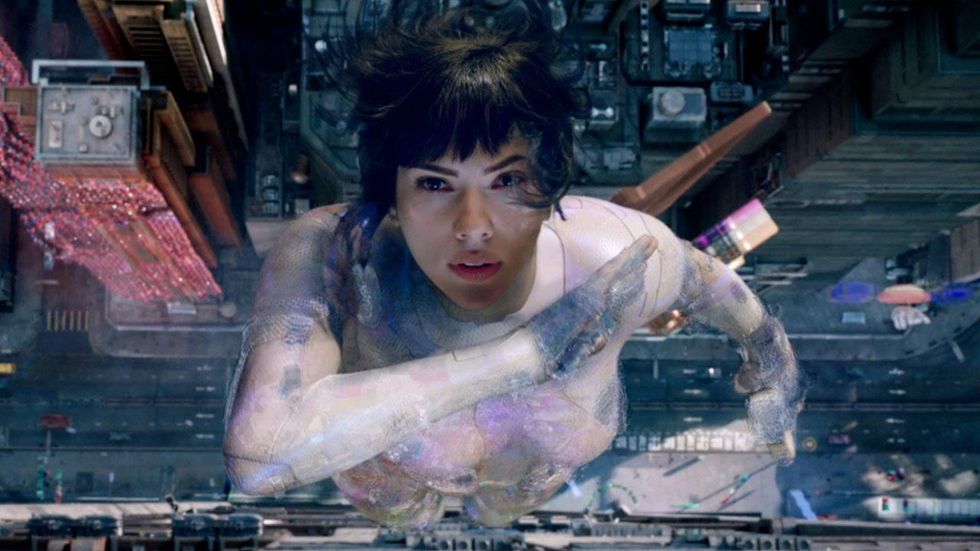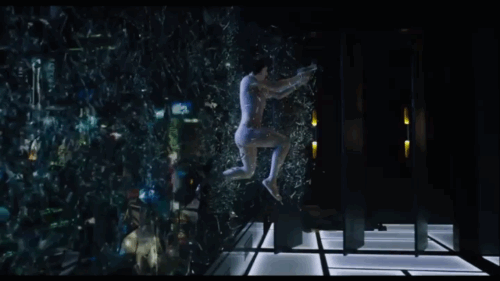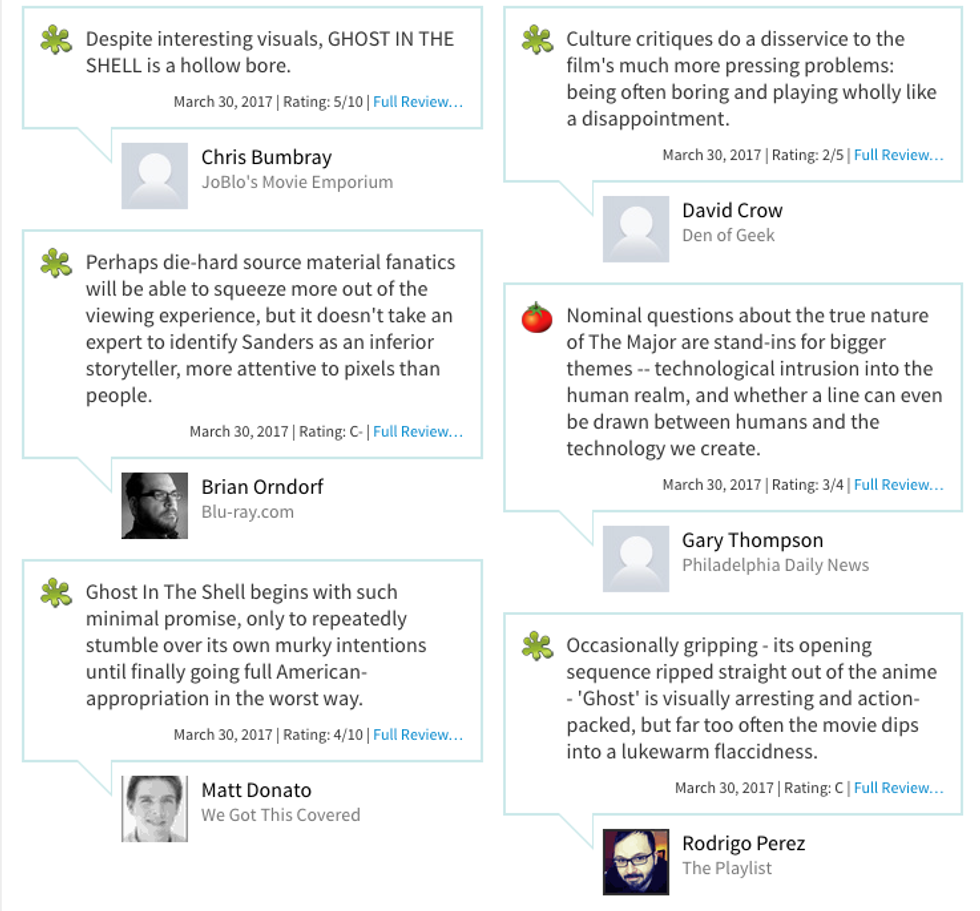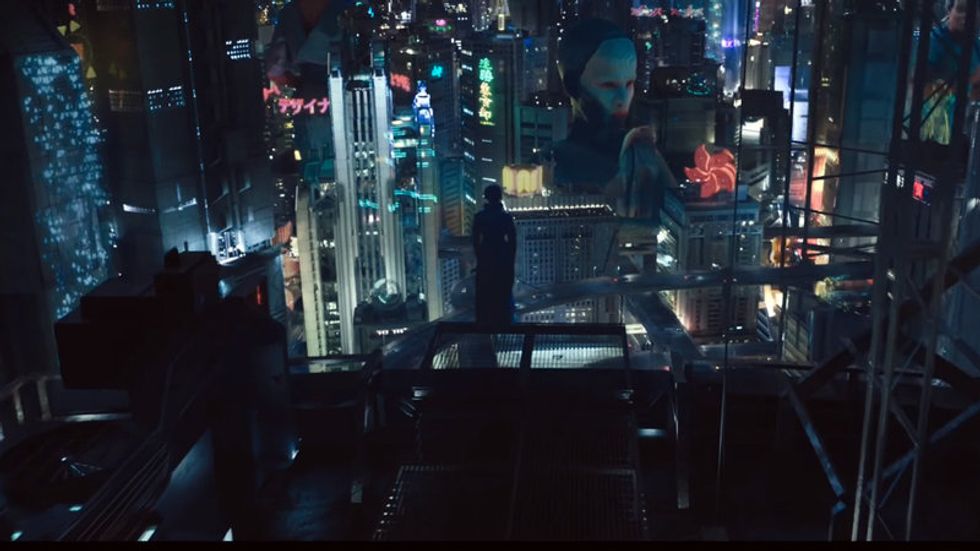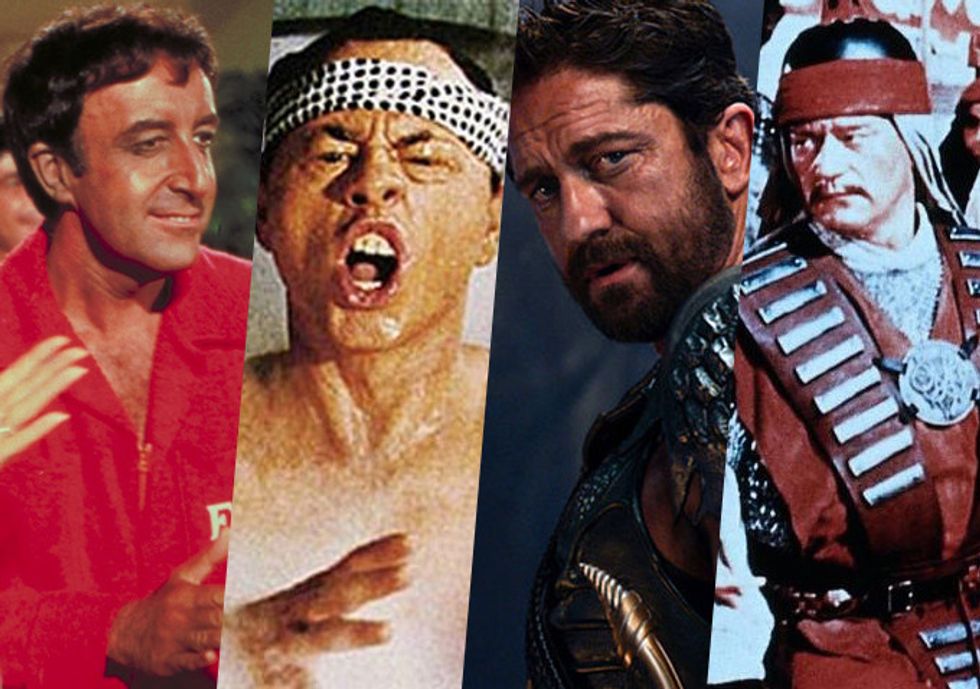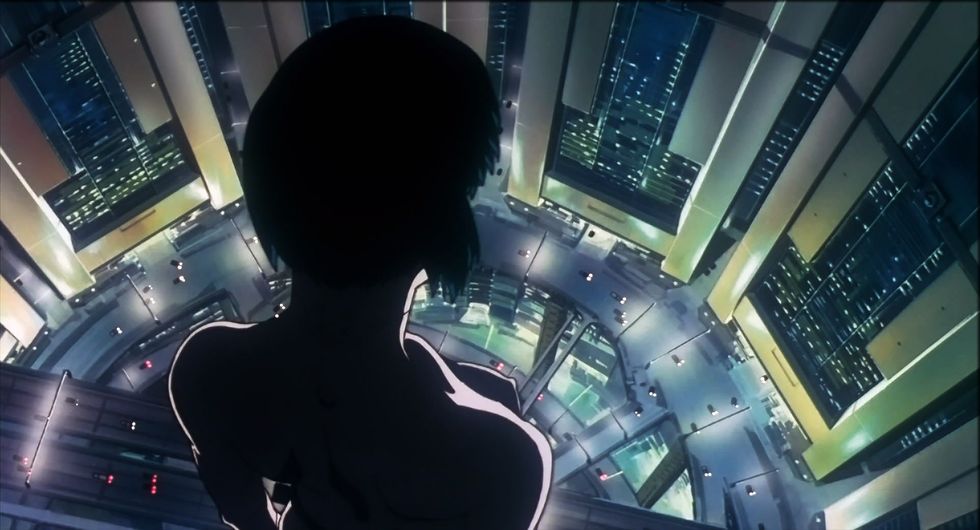It's no secret that anime-to-live action adaptations tend to be, well, kinda terrible. Apart from a few exceptions -- Park Chan-Wook's Oldboy comes to mind -- what we've gotten ranges from minor cult classics to some of the worst films of all time. Ghost in the Shell (released March 31) did its damnedest to avert such a fate, but if critical reception is any indication, Hollywood still has a lot to learn if it ever wants to capture the magic of anime on the silver screen:
1. DO make sure you understand the source material.
When Iron Man (2008) ushered in the comic book cinema renaissance, it was largely due to a group of passionate directors, producers, and studio heads who were huge fans of the source material, knew Earth-616 inside & out, and were dedicated to doing right by such beloved characters. Unlike other competing studios, they also havethe common sense to not "fix" anything that isn't "broken."
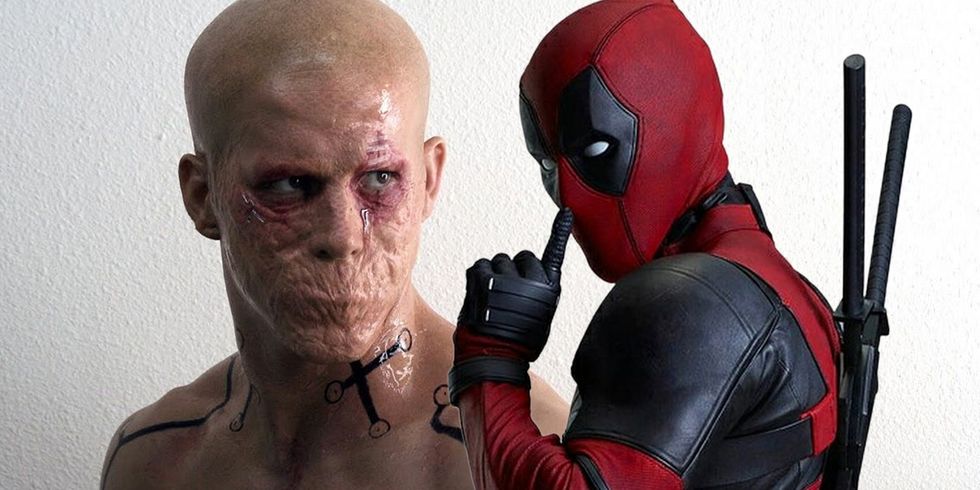
The success of the MCU, DCU, et al. made fans hopeful that anime and manga adaptations would find similar success, but the filmswegotreeked of apathy, dozens of studio-mandated rewrites, and disdain for the source material. So when GitS 2017 took a page out of the MCU's playbook by hiring individuals with utmost respect for the source material and a desire to do it visual and thematic justice, everyone got excited and praised it as a step in the right direction. Trouble is...
2. DON'T simplify, compromise, or fail to deliver on the promise of the premise
GitS 2017 only delivers what the fans want on a superficial level. Prior entries in the franchise share heady philosophical themes: the fine line distinguishing humanity and artificial intelligence, questions of consciousness, paradoxes of dualism, AI as the next stage of evolution, and social theory in the digital age. Rupert Sander's version abandons such complexities for a far more generic, significantly dumber "they didn't save your life -- they stole it" hook.
Based on critical reviews, this approach to adaptation seems to have backfired spectacularly.
Compromising the promise of the premise for the sake of mainstream appeal has plagued every anime-to-live action adaptation, and it always backfires. Esoteric themes and unique characters are what make anime so beloved in the first place -- appropriating "safer" alternatives desecrates the material and results in a cliched product that appeals to no one.
3. DO stay stylish
Anime has a rich history of inimitable visual traditions, yet most adaptations have failed to recreate the medium's distinctive cinematographic sensibilities. Not GitS 2017, though - if there's one aspect where the film excels, it's production design and visual effects.
Shot-for-shot recreations of iconic sequences intermingle and pulsate alongside new content in a visually arresting display of VFX prowess. If only all adaptations were this slavishly devoted to recreating the aesthetic of their source material.
However, there is one visual cue which seems conspicuously out of place --conspicuously white...
4. DON'T whitewash
Do we really need to have this conversation again? In 2017?
*sigh*
Okay, fine. Whitewashing is ethically ambiguous at best and racist at worst, the controversy will overshadow the quality of the final product, and you'll alienate a significant chunk of your prospective audience. If you really feel that insecure about non-white/non-male leads, then please, PLEASE:
1. Adapt anime/manga properties with canonically white casts likeAttack on Titan, Fullmetal Alchemist, and Monster.
2. Do a spiritual adaptation with an identical premise but entirely new characters, like the majority of early-2000s J-Horror remakes.
3. Be the change you want to see in the world and cast goddamn POC in roles originally intended for POC. Yeesh.
5. DO take risks (but ONLY if you follow through on them)
A major (heh) twist in the final third of GiTS 2017 almost justifies Scarlett Johansson's casting -- almost. It toys with themes of whitewashing, the fetishization/fragmentation of certain ethnic stereotypes, and the innate hypocrisy of a post-racial society in a radical way, and could have resulted in a masterpiece if executed right.
Trouble is... that didn't happen. Rupert Sanders and co. abandon it almost immediately after it's introduced, and the film comes off as even more tone-deaf about appropriation as a result. Get Out (which coincidentally has an inverted variation of said twist) proved that these kinds of conversations not only have a place in genre films, but bolster them to unfathomable levels of critical and commercial success.
So there you have it -- how to make a good anime adaptation. But until this happens (and I'm not holding my breath for Death Note after that teaser), stick with the undiluted creative vision of the original source material.

